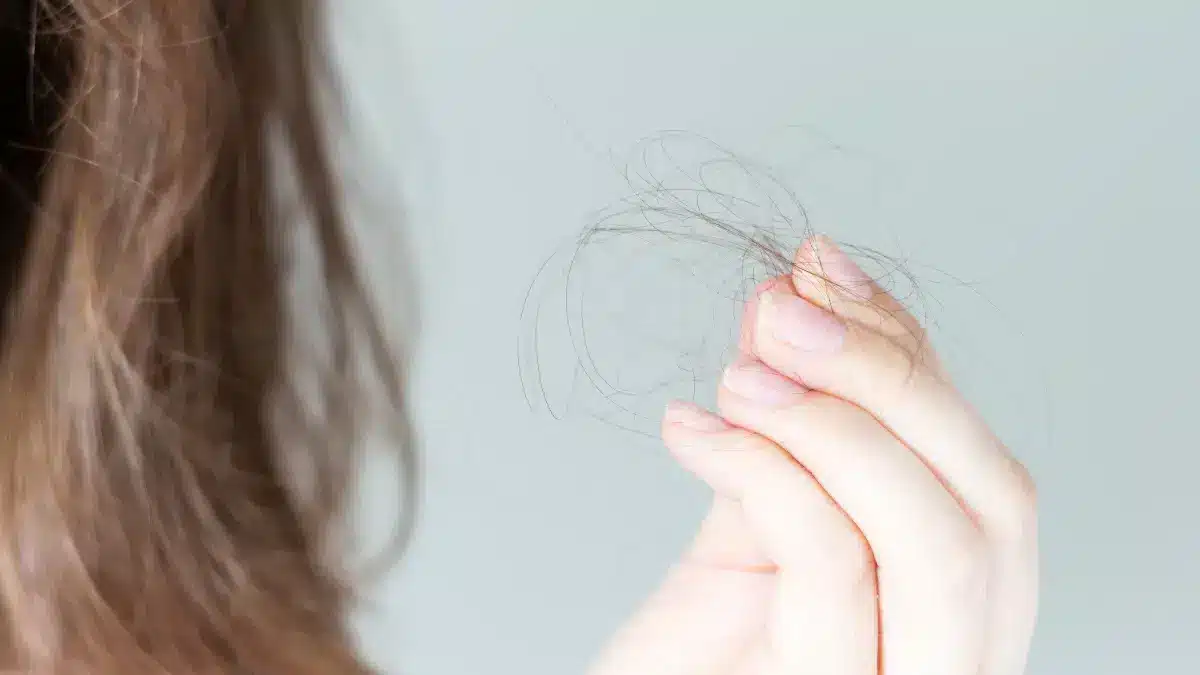Beyond the Operation: Addressing Hair Loss After Hysterectomy
A Hysterectomy is a surgical procedure performed to address medical conditions such as Fibroids, Endometriosis, and cancer by removing the uterus.
While it can help with these problems, it can also sometimes cause side effects like hair loss.
Hair loss after a Hysterectomy is a relatively common occurrence due to various reasons like hormonal imbalance, medications, etc.
Some women may notice their hair thinning or falling out after a Hysterectomy.
To know more about hair loss after a Hysterectomy, continue reading the article.
What causes hair loss after a Hysterectomy
There are multiple causes that can contribute to hair loss following a Hysterectomy.
Some of them include:
Hormonal imbalance
Hair loss after Hysterectomy is often attributed to removing the uterus, a primary source of Estrogen production.
Estrogen plays a vital role in promoting hair growth and ensuring its maintenance.
However, when the ovaries are surgically removed, Estrogen levels decrease, which might result in hair loss.
This hormonal imbalance can interfere with the regular cycle of hair growth and contribute to the hair loss experienced after a Hysterectomy.
Medications
Hair loss after Hysterectomy can also be caused due to specific medications, particularly Hormone Replacement Therapy (HRT).
HRT is commonly prescribed to manage menopausal symptoms following a Hysterectomy.
However, improper use or sudden discontinuation of HRT can potentially lead to hair loss in particular women.
Surgical stress
Hair loss after a Hysterectomy can also be linked to the physical and emotional stress caused by the surgical procedure itself.
The stress inflicted during surgery can result in inflammation within the scalp, leading to hair loss.
Additionally, the use of general anesthesia during the procedure has also been associated with hair loss.
The entire process of undergoing a Hysterectomy can be physically and emotionally demanding, creating stress on the body.
This stress response can disrupt the normal hair growth cycle, causing excessive shedding or Telogen Effluvium.
How long does hair loss last after a Hysterectomy

Hair loss after a Hysterectomy can last a few months to a year, but it can differ for each woman.
The body undergoes hormonal changes and heals from the surgery, causing the hair to shed.
However, for some women, hair loss may continue for a long time or become permanent.
Consult a hair expert for a proper diagnosis and treatment plan.
How to stop hair loss after Hysterectomy
Hair loss after Hysterectomy is typically temporary and will naturally improve with time.
However, if you are facing hair loss after undergoing a Hysterectomy, there are a few things that can be done, such as,
Spironolactone
Spironolactone, a medication used to treat hyperaldosteronism and heart failure medication, can effectively manage hair loss or thinning.
It inhibits the transformation of testosterone into dihydrotestosterone (DHT), a hormone linked to hair loss.
Spironolactone hinders the production of androgens, which can potentially prevent or slow down hair loss following a Hysterectomy caused by menopause.
Minoxidil
Minoxidil is an FDA-approved hair loss treatment in liquid, foam, and oral forms.
It enhances the circulation to the hair follicles, stimulating hair growth.
With its ability to stimulate the hair follicles, minoxidil offers a potential solution for individuals experiencing hair loss.
Healthy lifestyle
Embracing a healthy lifestyle can promote both general well-being and hair health.
A balanced diet rich in nutrients such as biotin, zinc, iron, and vitamins A, C, and E is necessary for hair health.
Regular exercise, effective stress management through relaxation techniques or therapy, and ensuring adequate sleep contribute to overall well-being and hair health.
Takeaway
Hair loss after a Hysterectomy can be caused by hormonal imbalances, medications (such as hormone replacement therapy), and the stress of the surgical procedure itself.
While hair loss is usually temporary and improves over time, it can last several months or longer.
Treatment options include medications like Spironolactone and Minoxidil, which can help promote hair growth.
Maintaining a healthy lifestyle, including a well-balanced diet and effective stress management techniques, can also promote hair health.
If you are facing hair loss after undergoing a Hysterectomy, consult a hair expert for a proper diagnosis and personalized treatment plan.
Frequently Asked Questions
WowRx uses only high-quality sources while writing our articles. Please read our content information policy to know more about how we keep our content reliable and trustworthy.






